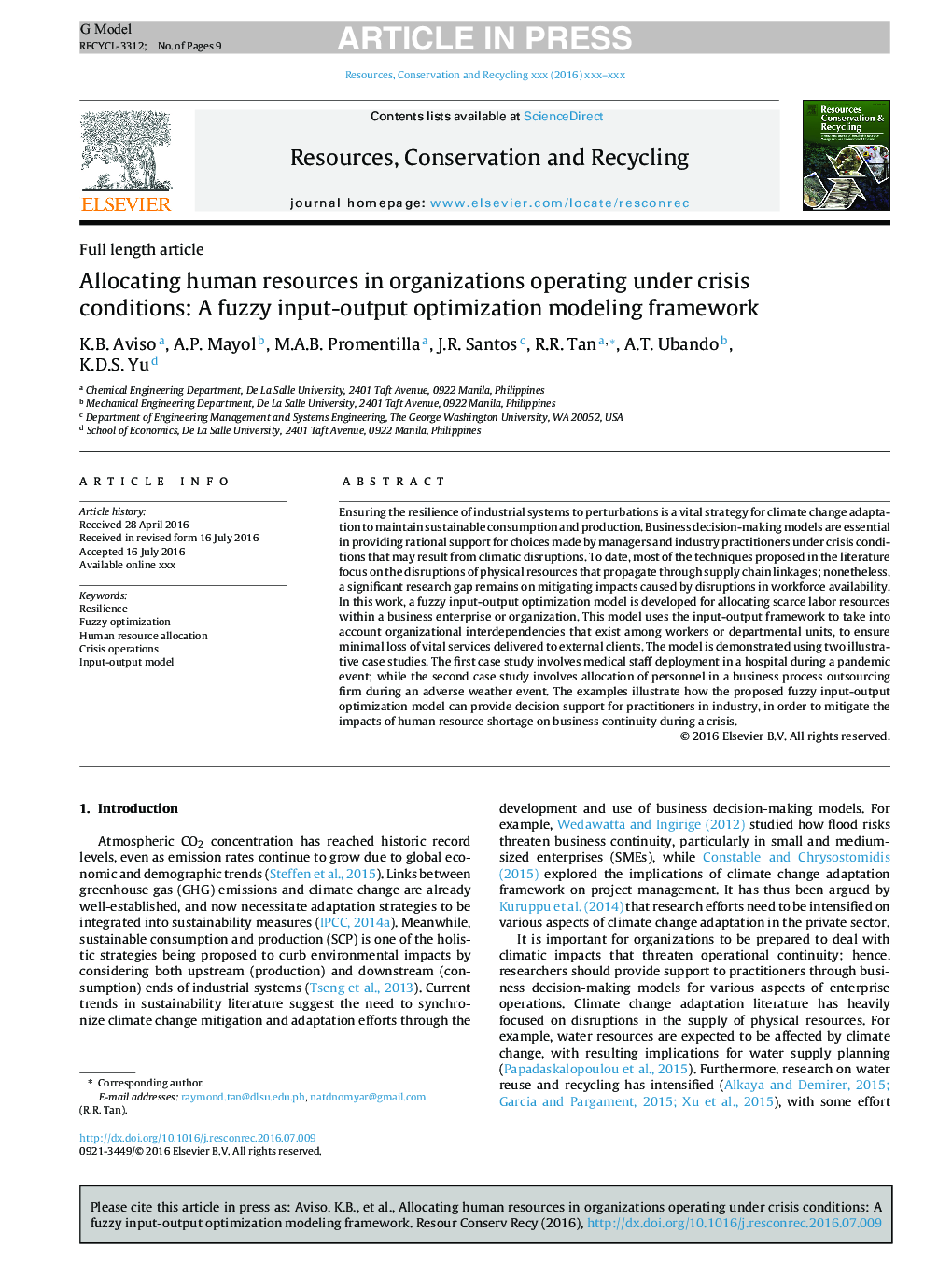| Article ID | Journal | Published Year | Pages | File Type |
|---|---|---|---|---|
| 7494681 | Resources, Conservation and Recycling | 2018 | 9 Pages |
Abstract
Ensuring the resilience of industrial systems to perturbations is a vital strategy for climate change adaptation to maintain sustainable consumption and production. Business decision-making models are essential in providing rational support for choices made by managers and industry practitioners under crisis conditions that may result from climatic disruptions. To date, most of the techniques proposed in the literature focus on the disruptions of physical resources that propagate through supply chain linkages; nonetheless, a significant research gap remains on mitigating impacts caused by disruptions in workforce availability. In this work, a fuzzy input-output optimization model is developed for allocating scarce labor resources within a business enterprise or organization. This model uses the input-output framework to take into account organizational interdependencies that exist among workers or departmental units, to ensure minimal loss of vital services delivered to external clients. The model is demonstrated using two illustrative case studies. The first case study involves medical staff deployment in a hospital during a pandemic event; while the second case study involves allocation of personnel in a business process outsourcing firm during an adverse weather event. The examples illustrate how the proposed fuzzy input-output optimization model can provide decision support for practitioners in industry, in order to mitigate the impacts of human resource shortage on business continuity during a crisis.
Related Topics
Physical Sciences and Engineering
Energy
Renewable Energy, Sustainability and the Environment
Authors
K.B. Aviso, A.P. Mayol, M.A.B. Promentilla, J.R. Santos, R.R. Tan, A.T. Ubando, K.D.S. Yu,
